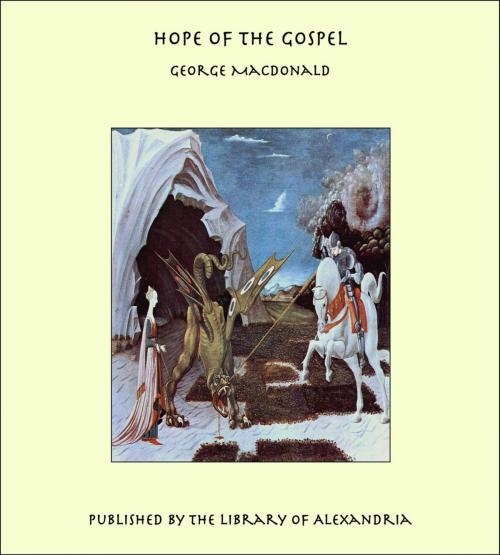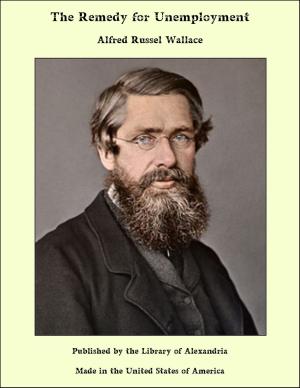| Author: | George MacDonald | ISBN: | 9781465550576 |
| Publisher: | Library of Alexandria | Publication: | March 8, 2015 |
| Imprint: | Language: | English |
| Author: | George MacDonald |
| ISBN: | 9781465550576 |
| Publisher: | Library of Alexandria |
| Publication: | March 8, 2015 |
| Imprint: | |
| Language: | English |
SALVATION FROM SIN. —and thou shalt call his name Jesus; for he shall save his people from their sins.—Matthew i. 21. I would help some to understand what Jesus came from the home of our Father to be to us and do for us. Everything in the world is more or less misunderstood at first: we have to learn what it is, and come at length to see that it must be so, that it could not be otherwise. Then we know it; and we never know a thing really until we know it thus. I presume there is scarce a human being who, resolved to speak openly, would not confess to having something that plagued him, something from which he would gladly be free, something rendering it impossible for him, at the moment, to regard life as an altogether good thing. Most men, I presume, imagine that, free of such and such things antagonistic, life would be an unmingled satisfaction, worthy of being prolonged indefinitely. The causes of their discomfort are of all kinds, and the degrees of it reach from simple uneasiness to a misery such as makes annihilation the highest hope of the sufferer who can persuade himself of its possibility. Perhaps the greater part of the energy of this world's life goes forth in the endeavour to rid itself of discomfort. Some, to escape it, leave their natural surroundings behind them, and with strong and continuous effort keep rising in the social scale, to discover at every new ascent fresh trouble, as they think, awaiting them, whereas in truth they have brought the trouble with them. Others, making haste to be rich, are slow to find out that the poverty of their souls, none the less that their purses are filling, will yet keep them unhappy. Some court endless change, nor know that on themselves the change must pass that will set them free. Others expand their souls with knowledge, only to find that content will not dwell in the great house they have built. To number the varieties of human endeavour to escape discomfort would be to enumerate all the modes of such life as does not know how to live. All seek the thing whose defect appears the cause of their misery, and is but the variable occasion of it, the cause of the shape it takes, not of the misery itself; for, when one apparent cause is removed, another at once succeeds.
SALVATION FROM SIN. —and thou shalt call his name Jesus; for he shall save his people from their sins.—Matthew i. 21. I would help some to understand what Jesus came from the home of our Father to be to us and do for us. Everything in the world is more or less misunderstood at first: we have to learn what it is, and come at length to see that it must be so, that it could not be otherwise. Then we know it; and we never know a thing really until we know it thus. I presume there is scarce a human being who, resolved to speak openly, would not confess to having something that plagued him, something from which he would gladly be free, something rendering it impossible for him, at the moment, to regard life as an altogether good thing. Most men, I presume, imagine that, free of such and such things antagonistic, life would be an unmingled satisfaction, worthy of being prolonged indefinitely. The causes of their discomfort are of all kinds, and the degrees of it reach from simple uneasiness to a misery such as makes annihilation the highest hope of the sufferer who can persuade himself of its possibility. Perhaps the greater part of the energy of this world's life goes forth in the endeavour to rid itself of discomfort. Some, to escape it, leave their natural surroundings behind them, and with strong and continuous effort keep rising in the social scale, to discover at every new ascent fresh trouble, as they think, awaiting them, whereas in truth they have brought the trouble with them. Others, making haste to be rich, are slow to find out that the poverty of their souls, none the less that their purses are filling, will yet keep them unhappy. Some court endless change, nor know that on themselves the change must pass that will set them free. Others expand their souls with knowledge, only to find that content will not dwell in the great house they have built. To number the varieties of human endeavour to escape discomfort would be to enumerate all the modes of such life as does not know how to live. All seek the thing whose defect appears the cause of their misery, and is but the variable occasion of it, the cause of the shape it takes, not of the misery itself; for, when one apparent cause is removed, another at once succeeds.















